#locus of control
Text
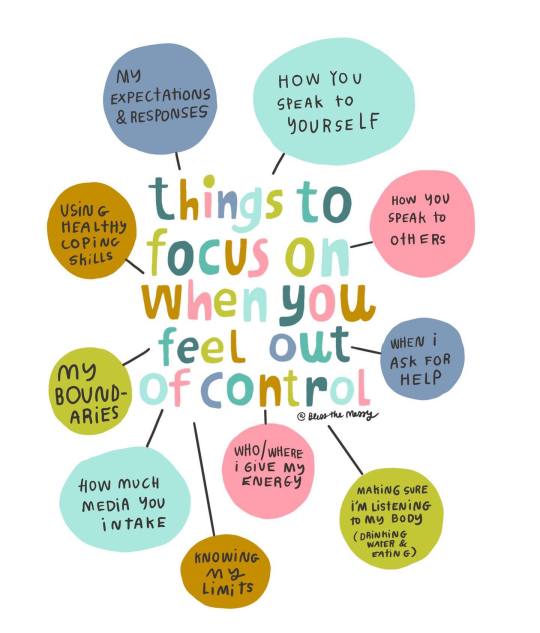
594 notes
·
View notes
Text
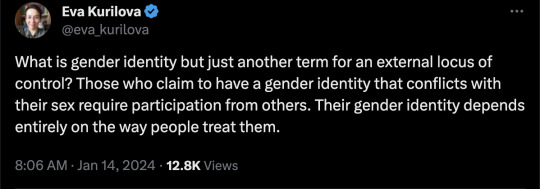
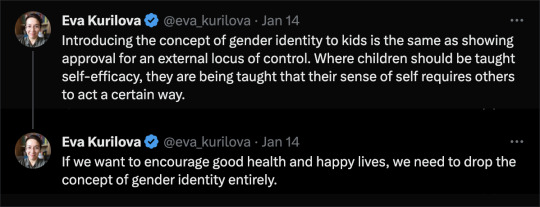
By: Eva Kurilova
Published: Jan 13, 2024
Locus of control is a term used to describe an individual’s belief about what factors control their lives. Those with an internal locus of control have a strong sense of agency and believe that their lives are influenced by their own actions and abilities. Those with an external locus of control feel that they are subject to luck, environmental factors, and other people’s actions.
Most people fall somewhere on the spectrum between an internal and an external locus of control, as this is reflective of life itself. There is a lot that we can control but a lot that we can’t as well. However, regardless of what is objectively true in any given situation, our preference for one view or the other has a major impact on our lives.
Those with an internal locus of control are more resilient, motivated, and independent, have a higher capacity for self-control, are better able to manage stress, and enjoy overall higher levels of mental and physical health. Those with an external locus of control, on the other hand, lack self-confidence and self-efficacy, blame others for their shortcomings, are less likely to take accountability, and experience worse mental and physical health outcomes. They are also more likely to have a mindset of victimhood.
Research abounds expounding the positive associations between an internal locus of control and factors like academic success and favorable work outcomes, as well as between an external locus of control and negative outcomes, like criminal offending. Helping people develop a greater internal locus of control has long been a goal of psychotherapy.
And yet, when it comes to the concept of gender identity, all of this knowledge and research is thrown out the window. After all, what is gender identity but just another term for an external locus of control?
Those who claim to have a gender identity that conflicts with their sex require participation from others. Their gender identity depends entirely on other people’s perceptions and on the way people treat them. They cannot concretize their identity simply by going about their lives, doing their job, practicing their hobbies, and fulfilling their roles as friends and family members—which is what an identity really is.
Instead, trans-identified individuals often try to artificially manifest a fantasy in their heads by forcing others to call them by a different name and pronouns and to pretend they see them as anything other than their sex. Some aren’t even satisfied knowing that others are merely playing along—they go further and demand others actually brainwash themselves into perceiving them as they wish to be perceived.
Furthermore, when someone is trying to manifest a gender identity, their locus of control sits not just in other people but in the rest of the world at large. They rely on external accouterments like clothing and makeup to signal what “gender” they are trying to appear as. They may go as far as to rely on external hormones to try and change how their body looks and even rely on surgeons to physically alter their body parts.
Obviously, all of us rely on the external world. None of us are entirely self-sufficient, and even if we have a strong internal locus of control, there is still much that is out of our control. But this is not the same as relying solely on the external world to recognize and manifest your identity for you.
I should also add that not all trans-identified people are like this. I think the locus of control is one of the main differences people implicitly note between trans-identified people who cause problems and those who don’t. This then gets clumsily translated into speaking about trans people with an internal locus of control as “real” or “actual” or “good” trans people.
I don’t believe there is any such thing as “true” trans. But I do believe there is a big difference between people who decide to transition and consider the onus to be on themselves to pass and be treated as the opposite sex and those who think the onus is on the rest of the world to make them feel like the opposite sex. I think this is the split that people pick up on when differentiating between the trans-identified people who really do just want to live their lives and those who want to tear the world down while paradoxically relying on it for their entire sense of identity.
(It is also my experience that trans-identified people in the former camp are less likely to insist that they have a “gender identity” and more likely to view themselves as having a mental disorder—gender dysphoria—that they are managing as best as they can).
Unfortunately, trans activists, doctors, teachers, counselors, politicians, and “experts” of all stripes are encouraging all trans-identified people to take on the latter mindset. They encourage an entirely external locus of control which then invariably develops into a victimhood mentality. Trans-identified people with an external locus of control come to believe that because they have no power to improve anything for themselves the world owes it to them.
This is what makes it all the more pernicious that this ideology is being pushed on children. Introducing the concept of gender identity to kids is the same as showing approval for an external locus of control. Where children should be taught self-efficacy and resilience, they are instead being taught that their very sense of self requires others to act a certain way and the world to comport itself to their whims. It’s a disaster that isn’t just waiting to happen but that is already well in progress.
There is no way to continue teaching the concept of gender identity to children and spreading it throughout society while encouraging people to develop an internal locus of control at the same time. The two pathways are mutually exclusive. If we want to encourage good health and happy lives, we need to drop the concept of gender identity entirely.
==
I've said it before and I'll say it again: if your "gender" can be invalidated by others not participating, like gods, it was never real in the first place. You can't claim "an internal sense of self," and then also claim it requires external validation. That's "I have a personal relationship with Jesus" and "I want to pass laws based on what Jesus wants." It's either a private personal matter, or a matter of public interest. You can't have both.
And in both cases, attempting to do both results in authoritarianism.
#Eva Kurilova#gender identity#gender ideology#queer theory#external locus#internal locus#locus of control#no debate#no debate is over#religion is a mental illness
18 notes
·
View notes
Text
"Anger is not simply an emotion. It is a highly evolved biological process and a deeply personal experience. Rather than judging, stifling, or fearing our anger, we should turn toward it and listen carefully. We should notice what it does to our bodies. And, once we have taken the vital pause to allow those signals to ease, we can put our cerebral cortex in the driver’s seat and interrogate our anger, asking what is wrong and deciding what action is or is not called for in this socio-cultural context.
Amanda Smith Barusch from Aging angry : making peace with rage
#quotes#amanda smith barusch#aging angry : making peace with rage#shape shifters: a journey through the changing human body#nvc#nourishment#authentic#choose theory#emotional agility#seneca#king lear#disco elysium#the uses of anger#who we are a chronicle of racism in america#step by step#pandora's jar women in the Greek myths#reconcile fowl play#this video will make you angry#learning from others#spontaneity#second nature#careful side effects may vary#locus of control#love's knowledge
4 notes
·
View notes
Text
I'm obsessed with expectency effects and epigenetics. A brief summary for you using examples.
Researchers were given two sets of random rats from the same breeder and told one group was smarter and better at mazes. The researchers, after conducting studies, PROVED that that group was smarter. This is expectancy effects. We look for evidence of a thing we believe to be true and prove it somehow.
There are a couple thoughts on why this works. False or inflated reporting of evidence in support of the belief and/or subconcious influence on the part of the researchers leading to legitimately better results. I think both play a part, but I am mainly in the latter camp. I genuinely think that if you believe someone or something to be a certain way, then you will influence them subconsciously to meet that expectation.
For instance, if you believe kids are hard to deal with, kids are going to pick up on that and not be easy to deal with with you. You're going to find lots of evidence to support that they're hard to deal with.
Epigenetics is a whole field studying non visible genetically inherited traits. Epigenetic studies in mice found that it took FIVE generations for mice to stop responding negatively to a stimulus that only the first generation actually experienced. One very, very important thing to realize about epigenetics, though, is on the literal google search page for the word. "Unlike genetic changes, epigenetic changes are reversible."
So not only is your body/brain likely responding to stimulus from like 1870 to now subconciously (because of the way it reads it's own DNA,) but ALSO everything you believe to be true is more likely to be due to expectancy effects! And when you learn and believe that whatever negative triggers and responses come up for you are reversible, you will prove it.
Isn't that beautiful? The mutability of the mind and body?
Isn't it beautiful to believe that we are not stuck in one way of thinking and reacting to the world no matter how ingrained by time?
You're going to do great.
I believe in you!
#Expectancy effects#expectations#Epigenetics#rats#mice#psychology#So much to be said here about gender bias and gender in general btw#terfs dni#the whole point is that things are reversible and changable#if you have limiting beliefs like I will never be strong you can immediately challenge them by finding evidence to believe that you can be#and then once you believe you can be strong you may find evidence of being strong until your belief becomes I am strong#Beautiful upward graph between time spent on a problem and likelihood of finding a solution#It only takes time#Your work produces results#Locus of control#trans#evolution#evolutionary psychology#manifestation#you can call it manifestation if you want to but it's just expectancy effects#market peaches
15 notes
·
View notes
Photo
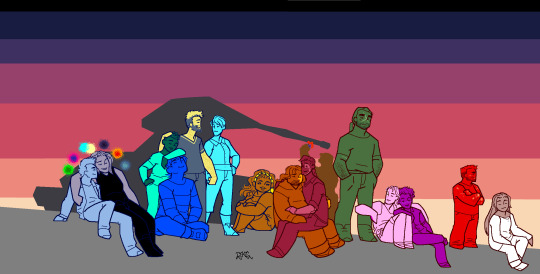
Here they all are~
(Spoilers for my own story-line; eventually, through all the angst and what-not I put them through, the characters have some nice moments... including sitting together, on a rooftop somewhere, watching the sunset. At one point, I was going to make the background relate to their specific colors, but that would turn into a mess, so I went with general sunset colors. From the left; Church and Tex with the AI fragments, Caboose with Tucker leaning on him, Wash and Carolina, Kai sitting beside her brother, Grif with Simmons in his lap, Locus, Donut and Doc, Sarge, and my OC Poppy! She gets to be here because I said so. In the background, there is Sheila and Lopez... I’m bad at drawing mech/robots, so I cheated and had them be silhouettes. If you look close, he’s got a bouquet of flowers for her; roses and violets. I had fun making different relaxed sitting poses for everybody, with a few standing thrown in. They deserve to have a good time, y’know?)
#red vs blue#rvb#leonard church#agent tex#lavernius tucker#michael j caboose#agent washington#agent carolina#kaikaina grif#dexter grif#dick simmons#locus of control#samuel ortez#franklin delano donut#doc dufresne#sarge#lopez the heavy#sheila the tank#ai fragments
100 notes
·
View notes
Text
This explains radical feminists and gender ideologists to an absolute T. An external locus of control is at the core of radical feminism and its political "lesbianism" and comphet theory.
Locus of control is a term used to describe an individual’s belief about what factors control their lives. Those with an internal locus of control have a strong sense of agency and believe that their lives are influenced by their own actions and abilities. Those with an external locus of control feel that they are subject to luck, environmental factors, and other people’s actions.
Those with an internal locus of control are more resilient, motivated, and independent, have a higher capacity for self-control, are better able to manage stress, and enjoy overall higher levels of mental and physical health. Those with an external locus of control, on the other hand, lack self-confidence and self-efficacy, blame others for their shortcomings, are less likely to take accountability, and experience worse mental and physical health outcomes. They are also more likely to have a mindset of victimhood.
3 notes
·
View notes
Text
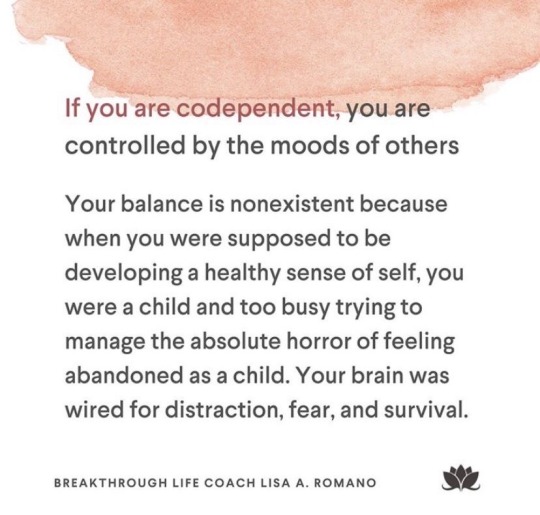
5 notes
·
View notes
Text
A Critique of Locus of Control
Following the pain management doctor suggesting I have an external locus of control via letter, and me knowing that that doesn’t represent my experience. I have an internal locus of control with the recognition that there are some external factors that may limit/slow down change. I thought I’d explain the concept via blog post with my A-level psychology knowledge. In health external locus of…
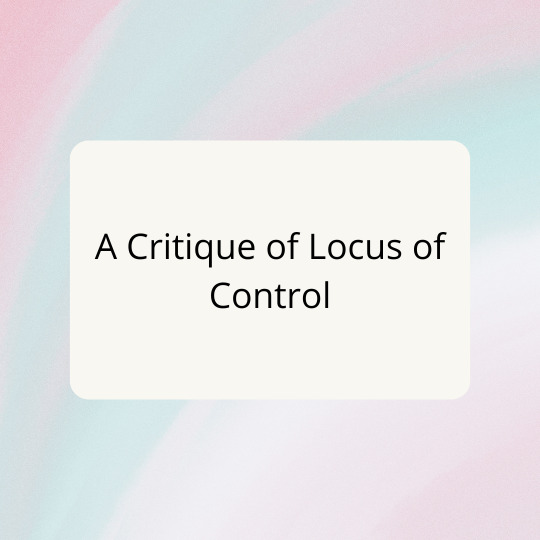
View On WordPress
#chronic illness#Chronic Migraine#Chronic pain#EDS#fibromyalgia#Locus of Control#ME/CFS#Migraine#psychology
2 notes
·
View notes
Text
Locus of control theory and The Charioteer
I have been thinking for some time about whether we can apply the theory of 'Locus of control' to The Charioteer, particularly Ralph and Laurie, and in light of some recent discussion about Ralph's, erm, determination in matters of Love, I thought I would put it out there. In a nutshell, the theory argues that broadly, people who feel more in control of their lives (have an 'internal locus of control) tend to be happier. For example:
-Are more likely to take responsibility for their actions
-Tend to be less influenced by the opinions of other people
-Usually, have a strong sense of self-efficacy
-Tend to work hard to achieve the things they want
-Feel confident in the face of challenges
I think we would recognise this in Ralph, although I would also feel that he has such an extreme sense of personal responsibility that it is not always good for him. An External Locus of Control would be:
-Blame outside forces for their circumstances
-Often credit luck or chance for any successes
-Don't believe that they can change their situation through their own efforts
-Frequently feel hopeless or powerless in the face of difficult situations
-Are more prone to experiencing learned helplessness
Do I detect a Laurie vibe, especially the last one, especially when he is around Ralph. I've always liked this exchange between them:
"There must be some reason why things happen. Something in us must touch them off. Like a magnetic mine."
"I don't know. I always think when you go to war you make yourself over to chance by an act of will."
"You have a peaceful mind, Spuddy."
"You'd be surprised."
So what do we think, does Spuddy really have a peaceful mind, or too little agency? Do these two have something to teach each other?
3 notes
·
View notes
Text
Apocalypse
I don’ ran and hid, now I make believe and pretend.
Nazi Germany ain’t got nothing on our impending global emergency.
The light is fracturing, as darkness advances!
Observing the precarity of our collective circumstances — I’ll take my chances!
Upon my tongue, I braid prayers woven by my dreams.
May protection be the raft by which I traverse these streams!
#truths89#poetry#NegressOfSaturn#ZisaAziza#spirituality#hindsight#bird’s eye view#fight#flight#fawn#freeze#ease#locus of control#shifts#era#conciousness#evolution#age of aquarius#blackpoet#energy
3 notes
·
View notes
Photo
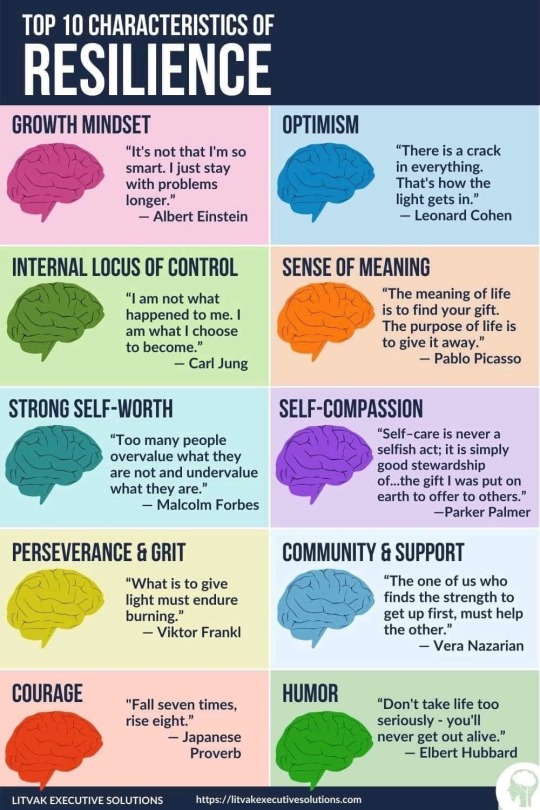
Top 10 Characteristics of Resilience - According to Meriam-Webster dictionary, Resilience is defined as “an ability to recover from or adjust easily to misfortune or change” (https://www.merriam-webster.com/dictionary/resilience).
#resilience#forgotten words#the forgotten mind#forgotten#characteristics#psychology#courage#humor#perseverance#grit#community#support#self compassion#self worth#sense of meaning#locus of control#growth mindset#optimism
2 notes
·
View notes
Text

#affirmations#letting go#detachment#just for today i will not worry#acceptance#locus of control#self care#mental health#coping#codependency#boundaries
30 notes
·
View notes
Text
Locus of Control
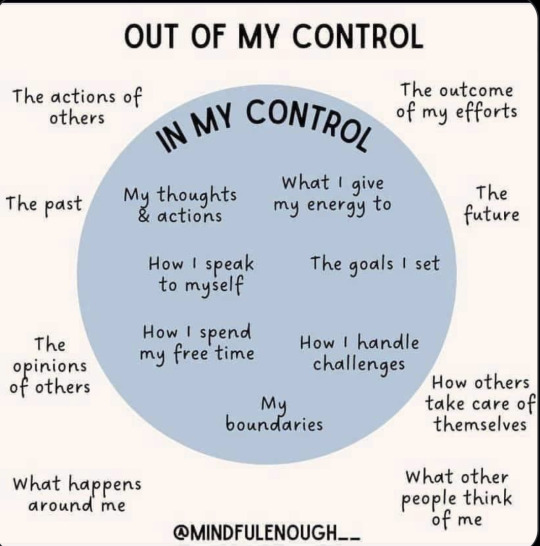
Image accessed on 10/11/22 @ https://www.reddit.com/r/coolguides/comments/v1vw7z/is_this_in_or_out_of_my_control/
In college, I learned about the locus of control. I’ll start off by saying- I’m pretty good at theory. If you give me an idea, I can probably conceptualize it. If you ask me to execute, however, I think that area can be improved.
Kind of like cooking off of a recipe and then ad-libbing. Whenever I cook for my friends, I tell them that they may need to add salt since I believe I may underseason. One of my friends came back and said to me, “You say that we may need to add salt. Each time, the flavor has been really good”. For some reason, I thought that if something I cooked did not meet my expectations of what I think it should taste or look like- it meant that it wasn’t as good and that it could be better. Perhaps to a degree, things can always be better or improved upon. What my friend said to me made me realize that I didn’t necessarily view my current efforts as enough. Whether I want to admit it, or not, that same belief/behavior plays out in my relationships with others. It comes out when we have disagreements. I’m not aware, until the other party says it to me, but I can’t quite understand how it displays. I’ve only come to have a concept of it now.
I’m sorry to the people I have hurt that felt like what they did was not enough for me. I’m sorry I was not aware of my patterns that did not contribute to the growth and health of our relationship. Thank you for reflecting back to me what I need to see and learn.
I see how my perfectionism, even now, affects my relationship with myself and how that impact others. Previously, I understood the theory of locus of control. You can only control what’s within your capabilities. You can’t control others. In my mind, I used to think ”Of course. Duh! You can’t control other people.” How naive and pompous of me to think that such concepts was so simple and easily applied. I had no clue then that my own actions/behaviors did not reflect that at all. I was subconsciously trying to control the situations, people, and events in my life through my actions/behaviors. The humble pie people talk about. I definitely had a heaping serving of that.
I’ve been struggling the past couple of days after learning new information about a person from my past. With anxiety and depression- I have a habit of future thinking and desiring to change the past because of what I think would have occurred if I did this one specific action. This habit- I am actively trying to break. The information at first was/is welcomed- it is something I have always wanted and deeply desired and longed for to happen. Now that the dust has settled a bit, I’m confused, and sad. Maybe a little afraid of what this all means or if it even means anything anymore. I find myself wanting to control the outcome, or desiring to change the past, or thinking of ways I could control the future. Then I stopped. I went to bed and woke up this morning with a voice in my head saying: “focus on what you do have control of”.
Maybe it’s my internal spirit guide recognizing I need help putting the theory into practice. Whoever/whatever it is- it reminded me to remember what is within my control. For a moment- it eased the pain I am feeling in my heart.
Sitting with my feelings is something I’ve been working on. My primary mode is to push the feelings away, stuff it down, dismiss it. (As some of you are aware, not ideal when you desire emotional intimacy with others) Now, the goal is to be curious and embrace it. The accepting part. The person from my past- I think in an effort to help me- would say to accept whatever the feelings I felt. I used to reply “I am. That’s why it hurts so much.” Truth is- what I thought was accepting wasn’t. Accepting isn’t combative. Accepting is more peaceful. It doesn’t mean that it doesn’t hurt, it feels less resistant, at least in my experience.
That’s what I’m telling you all. The theory of things might seem simple to understand and put into practice. The reality is putting it into practice is the hard, and messy part. It requires you to be humbled every day and being okay with situations/events/outcomes not coming out perfect or the way we desire it to be. I reflect and I chuckle. I was amazed at how what I perceive others to be able to accept things or sit with their feelings - I understand now that everyone struggles. Even the ones who seem to be able to do it so easily.
#struggle#locus of control#feelings#past#acceptance#peace#peaceful#combative#pompous#naive#pain#heart#spirit guides#intuition#focus#theory#practice#emotional intimacy#reflect#actions#behaviors#sad#confused#humble pie#humbled
2 notes
·
View notes
Text
WORDS OF THE DAY
ameliorate:
To make or become better; improve.
To grow better; to meliorate.
paradigm:
One that serves as a pattern or model.
A set or list of all the inflectional forms of a word or of one of its grammatical categories.
A set of assumptions, concepts, values, and practices that constitutes a way of viewing reality for the community that shares them, especially in an intellectual discipline.
Locus of control: is the degree to which people believe that they, as opposed to external forces, have control over the outcome of events in their lives. The concept was developed by Julian B. Rotter in 1954, and has since become an aspect of personality psychology.
intelligentsia:
The intellectual elite of a society.
An educated and intellectual; elite; intellectuals, collectively or considered as a class.
~~ Oct. '23
#intelligentsia#words of the day#words#dictionary#definitions#vocabulary#ameliorate#paradigm#Locus of control#Julian B. Rotter#personality psychology#psychology
0 notes
Text
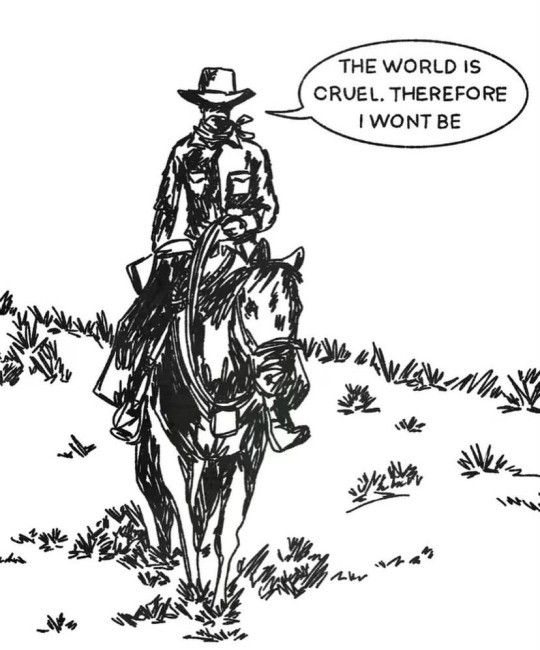
Credit: @starparkdesigns on Instagram.
1 note
·
View note
Text
Product design and psychology: Locus of Control in Video Game Design
Keywords: Locus of Control, Video Gaming, Game Design, Player Engagement, Player Agency, Decision Making.

Abstract:
This comprehensive study scrutinizes the application of "locus of control" in video games, viewed as a psychological mechanism to boost player engagement and immersion. Precise case studies shed light on the incorporation and outcomes of locus of control, furnishing a thorough comprehension from a product designer's perspective.
Introduction:
The gaming industry has experienced various player engagement strategies, a notable one being the concept of "locus of control". The notion, which refers to the degree to which people believe they have control over outcomes in their lives, has been astutely utilized in game design. This paper aims to explore the intricacies of locus of control, its utilization, and its effects on players. The dynamic nature of the gaming industry has witnessed the implementation of numerous strategies designed to engage and retain players, one notable approach being the application of the psychological construct "locus of control." Pertaining to the extent to which individuals perceive themselves as having influence over the outcomes in their lives, this concept has been adroitly incorporated into game design paradigms. The current paper aims to probe into the complexities of locus of control, its application within gaming contexts, and its subsequent effects on player behaviour and experience.
Explanation:
"Locus of control," a term coined by Julian B. Rotter in the 1950s, is instrumental in comprehending and evaluating player behaviour within the domain of video gaming. In essence, it delineates an individual's perception about the source of their success or failure. Individuals with an internal locus of control typically ascribe their outcomes to personal efforts and abilities, acknowledging a significant influence over the consequences of their actions. In contrast, those with an external locus of control perceive outcomes as predominantly contingent on external factors—like luck, fate, or the actions of others—over which they have minimal control.
Within the framework of video games, locus of control can significantly shape a player's experiences and behaviours. Game designers often strive to engender a sense of agency and competency, forging an environment in which players perceive their skills, decisions, and strategies as directly influencing in-game outcomes. This perspective resonates with an internal locus of control, potentially augmenting player immersion, satisfaction, and the motivation to improve.
Conversely, should a game be perceived as heavily reliant on luck or arbitrary elements (aligning with an external locus of control), it could result in feelings of disempowerment and frustration among players, adversely affecting their engagement with the game.

It is, however, noteworthy that some games tactically amalgamate elements of both internal and external locus of control. Games featuring "loot box" mechanics, for example, might interweave skill-based gameplay (internal locus of control) with randomized rewards (external locus of control), thereby creating an intriguing interplay of chance and skill that satisfies both the player's desire for agency and the thrill of unpredictability.
Nonetheless, this integration of internal and external locus of control elicits ethical debates, especially when intertwined with monetization strategies. If players perceive that individuals with greater financial resources can disproportionately influence outcomes in their favor (external locus of control), it could destabilize the perceived fairness and meritocracy within the game, leading to player dissatisfaction and potential disengagement.
Therefore, in designing and assessing video games, it is crucial to contemplate how the equilibrium of locus of control could impact the player experience and potentially give rise to manipulative dynamics, particularly in conjunction with monetization strategies.
Locus of Control in Gaming:
Conceptualization and Design: Locus of control in video games usually manifests as the player's ability to influence the game's environment, narrative, or outcomes, thereby enhancing immersion and engagement. By fostering a sense of agency, game designers can captivate players, keeping them invested in the game world. The incorporation of locus of control within the framework of gaming design and conceptualization is a compelling aspect that demands rigorous examination. In its essence, locus of control in the sphere of video gaming is frequently expressed as the player's capacity to impact several foundational components of the game itself: the game's environment, the narrative flow, or the various possible outcomes, to name a few.
When players perceive that their actions, choices, and strategies exert a discernible influence on these elements, they are likely to experience a heightened sense of immersion and engagement. Such perceptions resonate with the psychological construct of an "internal locus of control," wherein individuals attribute the outcomes of their actions primarily to their own efforts and abilities.
In this context, immersion can be understood as a state of deep mental involvement, wherein the player is so engrossed in the gaming activity that their awareness of physical surroundings may decrease. Engagement, on the other hand, refers to the degree of interest and enthusiasm that players exhibit towards the game. Both immersion and engagement are critical elements that contribute to the overall gaming experience, influencing aspects such as player satisfaction, game replay ability, and the longevity of player involvement.
Incorporating a strong sense of locus of control in the game design can empower players, fostering a sense of agency that is psychologically gratifying. Agency, in psychological terms, refers to the belief in one's capacity to exert control over and shape one's own experiences. In the realm of gaming, fostering player agency can involve creating a responsive game environment that reacts to player choices, creating branching narratives that adapt based on player decisions, or devising game mechanics where player skill and strategy significantly affect the game outcomes.
By nurturing this sense of agency, game designers have the potential to create an absorbing and captivating game world. This could enhance player motivation, keeping them engrossed in the gaming world and invested in the game outcomes. Thus, the role of the locus of control within game design and conceptualization underscores its importance as a vital psychological underpinning in crafting engaging and immersive gaming experiences.
Case Study: The Witcher 3: Wild Hunt
Wild Hunt provides an excellent example of locus of control, where players' decisions significantly impact the game world and narrative. This fosters a sense of responsibility and immersion, encouraging players to invest more time and thought into their choices.
youtube
Case Study: Minecraft
Mojang Studios' Minecraft is another illustration, providing a sandbox environment where players have near-complete control over their surroundings. This creative freedom stimulates engagement and encourages players to shape their unique experiences, reinforcing their locus of control.
Implications for Game Design:
While an emphasis on locus of control can amplify player engagement, it also poses design challenges. Crafting a world responsive to player actions requires careful balancing and extensive playtesting to ensure all possible outcomes are accounted for and feel meaningful. Moreover, it's essential to consider potential frustrations when players don't achieve their desired outcomes, leading to a sense of lost control.
Conclusion:
The concept of locus of control, as a method of psychological engagement in video gaming, presents an intricate fusion of design, psychology, and player satisfaction. As video game designers, we must contemplate these factors and endeavour for engaging and meaningful gameplay experiences that value players' sense of agency. Future research on the impact of locus of control will assuredly continue to shape the gaming industry's horizon.
References:
Bandura, A. (2001). Social cognitive theory: An agentic perspective. Annual review of psychology, 52(1), 1-26.
Berns, G. S. (2010). Satisfaction: The science of finding true fulfillment. Yale University Press.
Deci, E. L., & Ryan, R. M. (2000). The" what" and" why" of goal pursuits: Human needs and the self-determination of behavior. Psychological inquiry, 11(4), 227-268.
Hassouneh, D., & Brengman, M. (2014). A motivation-based typology of social virtual world users. Computers in Human Behavior, 33, 330-338.
Juul, J. (2013). The art of failure: An essay on the pain of playing video games. MIT Press.
Mojang Studios. (2023). Minecraft. Retrieved from: https://www.minecraft.net/
Rigby, S., & Ryan, R. (2011). Glued to Games: How Video Games Draw Us In and Hold Us Spellbound: How Video Games Draw Us In and Hold Us Spellbound. ABC-CLIO.
Ryan, R. M., Rigby, C. S., & Przybylski, A. (2006). The motivational pull of video games: A self-determination theory approach. Motivation and emotion, 30(4), 344-360.
Sicart, M. (2008). Defining game mechanics. Game Studies, 8(2), 1-14.
Sweetser, P., & Wyeth, P. (2005). GameFlow: a model for evaluating player enjoyment in games. Computers in Entertainment (CIE), 3(3), 3-3.
CD Projekt. (2023). The Witcher 3: Wild Hunt. Retrieved from: https://thewitcher.com/en/witcher3
Tauer, J. M., & Harackiewicz, J. M. (2004). The effects of cooperation and competition on intrinsic motivation and performance. Journal of personality and social psychology, 86(6), 849.
Weiner, B. (1986). An attributional theory of motivation and emotion. Springer-Verlag.
Rotter, J.B. (1954). Social learning and clinical psychology. Prentice-Hall.
#Locus of Control#Video Gaming#Game Design#Player Engagement#Player Agency#Decision Making#product design#psychological manipulation#gaming#user experience#player behaviour#the witcher 3#minecraft#Youtube
1 note
·
View note